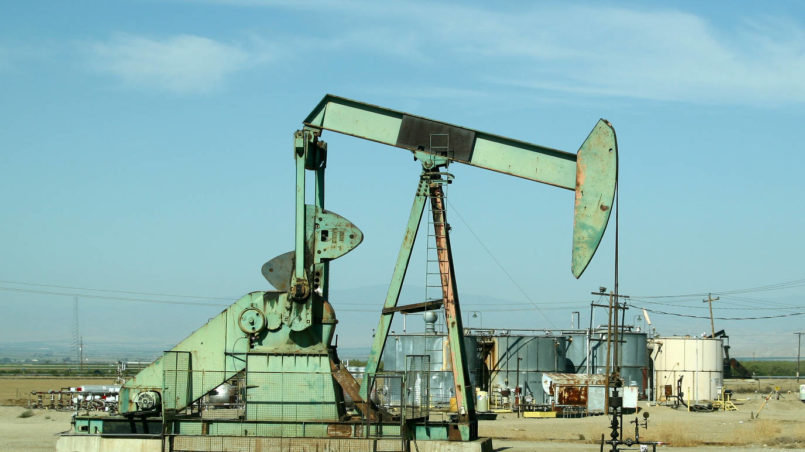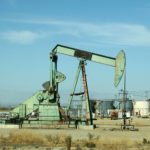New Awareness of Energy – The Oil Industry as an Example

Through the oil, we were able to produce fertilizers for agriculture, plastics, building materials, clothing, medicines, paints and, above all, fuels, which made our modern life possible. Unfortunately, those achievements didn’t come without a price.
Our thurst for oil has more than tripled since the 1960ies. Today, the world consumes an estimated 14 billion liters of oil – per day, mind you! It does not take much contemplation to recognize that this industry has a profound influence on our existence.
Even before the armed clashes of the recent past, this power was plain to see. The struggle for oil and gas calls for ever more human- and ecological sacrifices. The burning oil fields in Iraq, the destroyed landscapes in the wake of oil sand mining, the “oil cloaca” in the Niger Delta, the gigantic oil rug off the gulf of Mexico. Unfortunately, this list could be continued almost endlessly.
Violent attacks on oil-rich states in violation of international law, camouflaged under the cover of humanism, have cost more than 1 million lives in the Middle East alone. The consolidation of compliant dictatorships such as in Saudi Arabia completes this devastating picture.
We also see a continuation of these murderous practices in Syria, in the form of a bizarre mix of civil- and proxy war. Here too, access to resources and infrastructure for oil and gas supplies plays an important role. The refugee problem is an absolutely logical consequence of these actions.
The countries destroyed by the assault wars become subject to group interests. The “by-products” of this raid for oil and geostrategic control over resources, are themselves a hit for other interests. In Iraq alone, the armaments industry, as well as private entrepreneurs with their subcontractors have made tens of billions of dollars. Corporations like Halliburton, Kellog Brown Root and Blackwater, to name but a few examples, have lined their pockets nicely, under ethically inconceivable conditions. These practices are also a “wonderful” example of the “logic” of our so-called “economic system”, which is designed for predatory growth, and does not shy away from destruction in order to open up new markets and opportunities for the big business.
But there are alternatives to this murderous madness. A complete departure from fossil energy, and the associated dependencies, would be quite possible.
It is therefore all the more important for us to inform ourselves, to act and, above all, to put pressure on policy makers and manufacturers. The changeover, in my opinion, requires two interrelated phases. The first would be to use and modify existing technologies wisely and efficiently until the infrastructure and the penetration of new energy carriers and technologies have replaced the old system. Also there are no two ways about it: Every one of us will need to make changes in their environment and in their own behavior.
Phase 1 – Awareness in our use of energy.
I do not exaggerate when I say that every liter of fuel purchased is a “yes”- vote for this murderous policy. We need not be surprised that people from less privileged parts of the world, by the direct and indirect influence of our behavior and the resulting policy, flee from their countries and come to us. What is rather surprising, is how few people are aware of this connection.
Now, as long as we are dependent on the status quo, only a conscious handling of energy can be taken on as a first step. It is estimated, that, globally speaking, we can save almost 1/3 of our energy consumption with altered behavior alone. Another third will be possible in the future with new, more efficient technologies.
We can reduce both direct and indirect energy consumption.
In autotransport for example, simply by employing a more economical driving style and proper maintenance, just like that and without any loss of comfort, we can achieve fuel savings of about 10% (and depending on the situation, also significantly more). Driving at a low revolution and in a forward-looking manner is enough to reduce consumption.
Here is a link for further fuel saving tips.
In Austria alone, 4.6 billion liters of gasoline and diesel were consumed in 2015. This means that we could save roughly 460 million liters by minimally changing our driving behavior. This is equal to almost half of the current annual heating oil consumption for the whole of Austria.
Saving through changed consumer behavior:
In the case of foodstuffs, we can also have a significant impact on energy consumption. Today’s agriculture is highly dependent on petrochemical products.
Fertilizers from petroleum, diesel for agricultural machines and transport are to be included here. According to the latest estimates, about a third of all foodstuffs, some even still edible, end up in the trash.
A more careful handling of food would lead to enormous energy savings, as well as a reduction in the labor required for production. If possible, more local products should be purchased. Excesses like chives from South Africa – and there are such absurdities – should be avoided.
Clothing
The textile industry is even bigger than the petroleum industry. Similar principles as for food production apply here, too. Since much of the clothing is manufactured in countries such as China, Bangladesh, India, etc., the energy expenditure for transportation is not to be underestimated. And that’s not even mentioning the inhumane production conditions and the highly toxic composition of the textiles themselves! A prudent handling of our clothes, a conscious ignoring of imposed and superficial commercial fashion trends, as well as the purchase of 2nd hand offers can set a decisive impulse here.
Household
Much of the energy expenditure in households is placed on heating and hot water. It is precisely here, that enormous savings can be achieved. Some of them, again, will come into effect simply by changes in behavior, others are connected with investments. Properly set and maintained water heaters, intelligent time- and presence-dependent control systems, the right temperatures for every room. Even small things like the sealing of entrance doors and windows to prevent air drafts or the mounting of radiator reflector films can cause small miracles.
Water saving showerheads and flow limiters: Here, especially in our latitudes, it is not so much about water saving as such, but about the drastically diminished quantity of water, that has to be heated up. Small example: A conventional shower head consumes up to 20 liters per minute – water saving shower heads achieve, usually with the same perceived shower quality, to push the amount to under 10 liters. With a simple small investment you can halve the required amount of energy for hot water!
For power consumption, with things like LED lighting, compared to the incandescent or halogen lamps, we can save up to 90% energy. For refrigerators and freezers, the correct temperature should be ensured. Small portions can be quickly and easily prepared in more efficient mini-ovens, rather than having to start up the large oven for every small pizza. Electric appliances in general, should, if possible, also be returned to the used cycle. In Austria, Willhaben, Spock, Ebay and Co can ensure that we can increase the useful life of our appliances as a whole, and can also avoid waste.
You can find further useful energy tips, for example at E-Control.
Conclusion
Our earth has taken millions of years to bind this huge amount within. What we are doing here deserves the term Terraforming, meaning the artificial adjustment of a planet’s atmosphere. In science fiction, with this technology, uninhabitable planets are made habitable for humans – we are doing the exact opposite.
Translation from German: Serena Nebo
Credits
| Image | Title | Author | License |
|---|---|---|---|
 |
Pump_Jack | Sanjay Acharya | CC BY-SA 3.0 |
